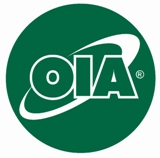For Immediate Release
Contact: Steven Hoffman, Compass Natural, steve@compassnatural.com, tel 303.807.1042
Say It Ain't So, Mr. President: Tell Me You Didn't Cave on GMO Alfalfa ... and Now Sugar Beets!
Commentary by Steven Hoffman
Update: In the second deregulation of GMO crops in a week, on February 4, the USDA announced it will now allow farmers to begin planting “Roundup-Ready” GMO sugar beets in order to avoid a “shortage of U.S. sugar.” This decision, released to the media on a Friday at the end of the business day—a key tactical PR move when you don’t want media attention—is in defiance of a federal court order made by San Francisco U.S. District Judge Jeffrey S. White banning the planting of GMO sugar beets until a study of their environmental impact can be done, according to reports in the Wall Street Journal and the New York Times.
Boulder, CO (February 7, 2011) – The USDA on January 27 announced it would allow the planting of genetically modified alfalfa without any restriction or labeling requirements.
Since then, the organic industry has been up in arms. Alfalfa is the nation’s fourth largest crop and a prodigious pollinator, and as such, it is all but guaranteed that organic alfalfa crops will become genetically contaminated, which could be particularly threatening to organic dairy producers who rely on alfalfa as feed for their cows.
Now, it is reported that the Obama administration itself appears to have used this issue as a trading card to further its own agenda, allowing GMO alfalfa to become completely deregulated, according to a commentary by New York Times columnist Maureen Dowd and a January 27 article in the Wall Street Journal.
Calling the proposal to regulate GMO alfalfa—originally promised by USDA secretary of agriculture Tom Vilsack—overly “burdensome” to business, the Obama administration, led by departing presidential advisor David Axelrod, “abandoned a proposal to restrict planting of genetically engineered alfalfa,” says the Wall Street Journal.
Say it ain’t so, Barack!
The organic industry, in my respectful opinion, should sue the USDA for putting an unreasonable burden on our own market—the only agricultural system in the United States requiring a paper trail from seed to shelf. Now, organic producers are at huge risk that their organic seed stock will become polluted by GMO alfalfa and other pollinating GMO crops, including GMO corn and sugar beets, significantly threatening their ability to produce certified organic product.
The organic industry may not know it is at war with the biotech seed industry, but the biotech industry definitely knows it is at war with organic. This time, through shrewd political lobbying with USDA and the White House, biotech agriculture has won a decisive victory in the continuing onslaught of genetically engineered foods, controlled by only a handful of multinational corporations.
In criticizing the USDA on loosening restrictions on GMO alfalfa, Sen. Patrick Leahy, author of the original Organic Foods Production Act, called it “a big payday for the giant firms that pushed for this rollback,” according to the Burlington Free Press.
Before we lose this battle completely, we must press all our government and business representatives all the way up to the president to push for required labeling of GMO ingredients, just like in Europe, Japan and elsewhere. Over there, GMOs are in hardly any grocery products because they must be indicated on the label—and when they are, nobody buys them.
Here in America, the pro-biotech lobby has been very successful in that there is no labeling requirement at all for GMO ingredients in foods. As a result, most consumers don’t even know that GMO ingredients are in 80% of conventional grocery products, and that virtually 90% of all the corn, soybeans, cotton and sugar beet crops in the U.S. are from GMO seed.
If consumers knew their foods were derived from genetically engineered ingredients, no one would buy them! That is how the biotech seed and herbicide companies have the advantage—and they’ve known that since GMOs were first introduced. “If you put a label on genetically engineered food you might as well put a skull and crossbones on it,” said Norman Braksick, president of Asgrow Seed Co., a subsidiary of Monsanto, in a 1994 article in the Kansas City Star. Even then, the biotech lobby knew how consumers would react. Their success is a direct result of violating the consumer’s right to know regarding labeling of what is in their food.
There is more than enough science to show that GMO foods are risky to human, animal and plant health and the environment. The use of toxic, synthetic herbicides has increased by nearly 400 million pounds due to GMO agriculture, and superweeds are already becoming resistant to Monsanto’s Roundup, the primary herbicide used in GMO agriculture. Because of that, GMO farmers are now being recommended to use even more toxic herbicides.
I urge you to read balanced perspectives on this issue, and then write to your congressperson, senators and also to the President to require the labeling of GMO ingredients in foods. The organic industry and organic consumers need to speak loudly on this issue.
Just remember, the same lobby that brought you GMO food had this to say:? “Monsanto should not have to vouchsafe the safety of biotech food. Our interest is in selling as much of it as possible. Assuring its safety is the FDA’s job,” said Phil Angell, Monsanto’s director of corporate communications, in a 1998 New York Times article.
And now, it’s only getting worse. Urge organic industry leaders that there is no compromise with GMOs in our food system. It will only backfire on the organic industry. Heck, where are organic dairy farmers going to get organic alfalfa in 10 years, maybe even only five? Let’s see what the cost of organic milk is then. That would be another victory for the biotech lobby – to continue to make organic foods out of reach of most folks’ budgets.
Don’t think that ain’t in their plan.
About Compass Natural
Compass Natural LLC, established in 2002 and based in Boulder, CO, brings 30 years’ experience in natural and organic products sales, marketing, public relations, communications, research, event planning, and strategic industry guidance to businesses with interests in the $290 billion market for natural, organic, sustainable, and socially responsible products and services. Visit www.compassnatural.com or call 303.807.1042, info@compassnatural.com. © 2011 Compass Natural LLC.
















